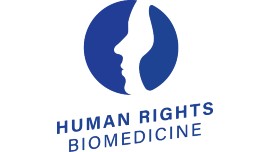Artificial Intelligence

The report was prepared in the framework of the Council of Europe Strategic Action Plan on Human Rights and Technologies in Biomedicine (2020-2025), regarding the governance of technologies and the strategic objective of “Embedding human rights in the development of technologies which have an application in the field of biomedicine”.
Why is the report on the application of AI in healthcare and its impact on the patient-doctor relationship so important in Finland?
Council of Europe
- Council of Europe Framework Convention on artificial intelligence and human rights, democracy, and the rule of law | 2024
- Explanatory Report of the Framework Convention on artificial intelligence and human rights, democracy, and the rule of law | 2024
European Commission
- Artificial Intelligence Act | 2024
OECD
- Recommendation of the Council on Artificial Intelligence | adopted on 2019 and amended on2024
UNESCO
Strategic Action Plan on Human Rights and Technologies in Biomedicine (2020-2025)
Strategic objective
Technological innovation often creates its own dynamic. Major technological breakthroughs in fields such as artificial intelligence, genome editing, and neurotechnology have the potential to advance biomedicine and healthcare. However, uncertainty exists about the impact and direction of these developments. For example, artificial intelligence is increasingly proficient in diagnostics but depends on massive amounts of patient data which may impact on transparency and patient trust, thereby necessitating the provision of guidance for healthcare professionals. Genome editing techniques which introduce inheritable changes in the human genome raise serious concerns about the possibilities of irreversible harm to future persons. Developments in neurotechnologies, such as deep brain stimulation, brain-computer interfaces, and artificial neural networks, raise the prospect of increased understanding, monitoring, but also of control of the human brain, raising issues of privacy, personhood, and discrimination.
The role of governance in biomedicine is often restricted to facilitating the applications of technology and to containing the risks that come to light. In this way, human rights considerations will only come into play at the end of the process, when the technological applications are already established, and the technological pathways often have become irreversible. To overcome this problem, there is a pressing need to embed human rights in technologies which have an application in the field of biomedicine. This implies that technological developments are from the outset oriented towards protecting human rights. For that reason, governance arrangements need to be considered, which seek to steer the innovation process in a way which connects innovation and technologies with social goals and values.




